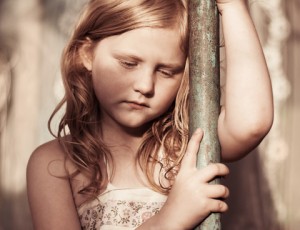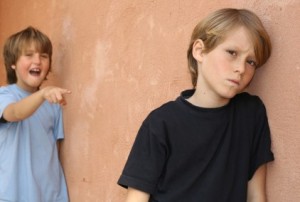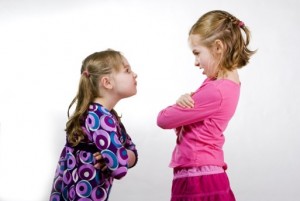Overcoming Childhood Abuse & Trauma
by Kalpana Murthy, LPC
When overcoming childhood trauma and abuse, a common misperception is that trauma is only experiences involving life threatening events. This is not the case.Trauma is any experience that has a lasting negative influence on how you think, feel and behave. Trauma isn’t just having bad experiences, it’s also not receiving enough positive emotional experiences.
Trauma Definition
Trauma can be a series of chronic distressing experiences or a single event that has a lasting negative influence on how you think and feel, your beliefs about yourself, how you relate to others and your view of the world.
Trauma is not just witnessing or experiencing bad things. Trauma is also not receiving enough good things, like attention, affection, nurturing, praise, encouragement, validation or acceptance of who you are.
Two Categories of Trauma
 Traumatic experiences can be categorized two ways:
Traumatic experiences can be categorized two ways:
- upsetting life experiences, without a physical component, that are emotionally disturbing
- experiences involving potential or actual physical harm or death
Types of Trauma & Childhood Abuse
Here is a list of common types of experiences that are considered trauma.
- Witnessing Conflict – parents or family members arguing or fighting verbally or physically.
- Witnessing Harm – someone being harmed physically, sexually or emotionally.
- Unhealthy Parent – growing up with an alcoholic or self-absorbed or narcissistic parent.
- Verbal Abuse – being ridiculed, criticized, blamed, shamed, put down, called names.
- Emotional Abuse – being ignored, isolated, terrorized, threatened, pressured to do or say things you don’t want to do.
- Physical Abandonment – Caregivers threatening to leave you or give you away. Caregiver leaving and not returning. Being left alone at a young age to care for yourself or siblings.
- Emotional Abandonment – Insufficient attention, lack of physical affection, and not enough verbal expressions of love, praise, encouragement, and acceptance that you are good and just for who you are and the way you are.
 Spanking, Beating, Physical abuse/assault– Someone threatening to hurt you physically or actually hitting you or harming you physically.
Spanking, Beating, Physical abuse/assault– Someone threatening to hurt you physically or actually hitting you or harming you physically.- Bullying – by parents, teachers, sports coaches, siblings, peers.
- Sexual Abuse, Molestation – Inappropriate touching, sexual contact, sexual abuse, rape. This includes exposing you to sexual material at too young an age. Someone touching you or having sex with you in a way that you see as wrong. Someone attempting or succeeding in forcing you to engage in unwanted touching or sex acts.
- Death of someone close to you (person or pet) by natural causes or by accident, homicide, suicide, war, or other unnatural causes.
- Traumatic Loss, Ambiguous Loss – This includes moving, loss of friends, end of a friendship, relationship break up, divorce, betrayal, affair, traumatic relocation, loss of job, business, dream, goal, money or physical health.
- Accident or Natural Disaster – car, bike, boat, plane accident or other experience where you were scared, terrified or seriously hurt; fire, flood, tornado, hurricane, bombing, etc.
- Prejudice/Racism – Any incident when you were treated in a negative manner based on racial, gender, ethnic, sexual orientation. Other prejudicial decision or treatment.
- Medical or Dental treatment – Exams, operations or procedures that were frightening or traumatic.
- Other lasting painful experience, including something others may not consider upsetting or traumatic.
- Blame – Any upsetting experience or activity for which you blame yourself or others blame you for.
Effects of Childhood Abuse and More Recent Trauma
 Often we think these types of experiences or past events are no big deal, but in reality this experiences and the associated sensations are stuck or frozen in our brain. When associated present day experiences link up with these stuck memories, our past becomes present and is having a big influence on our present day experiences and our ability to feel good, achieve our goals, and enjoy life more fully.
Often we think these types of experiences or past events are no big deal, but in reality this experiences and the associated sensations are stuck or frozen in our brain. When associated present day experiences link up with these stuck memories, our past becomes present and is having a big influence on our present day experiences and our ability to feel good, achieve our goals, and enjoy life more fully.
These types of upsetting or traumatic experiences are often the underlying cause of diminished self-esteem, shame, guilt, trust issues, anxiety, depression, codependency, feeling numb, sleep problems, explosive anger, perfectionism, relationship problems, career problems, addictions, self-sabotaging behaviors or feeling stuck.
Trauma Counseling for Childhood or Recent Events
How I Can Help You – I understand that time, talk, hard work, willpower, and positive attitude alone often do not put the pain and effects of upsetting experiences behind us. The good news is that I’ve worked with hundreds of clients in overcoming childhood abuse and trauma and have seen first hand how our work together has given them lasting relief and resolution from the impact of a dysfunctional family life in childhood as well as more recent traumas and upsetting experiences.

